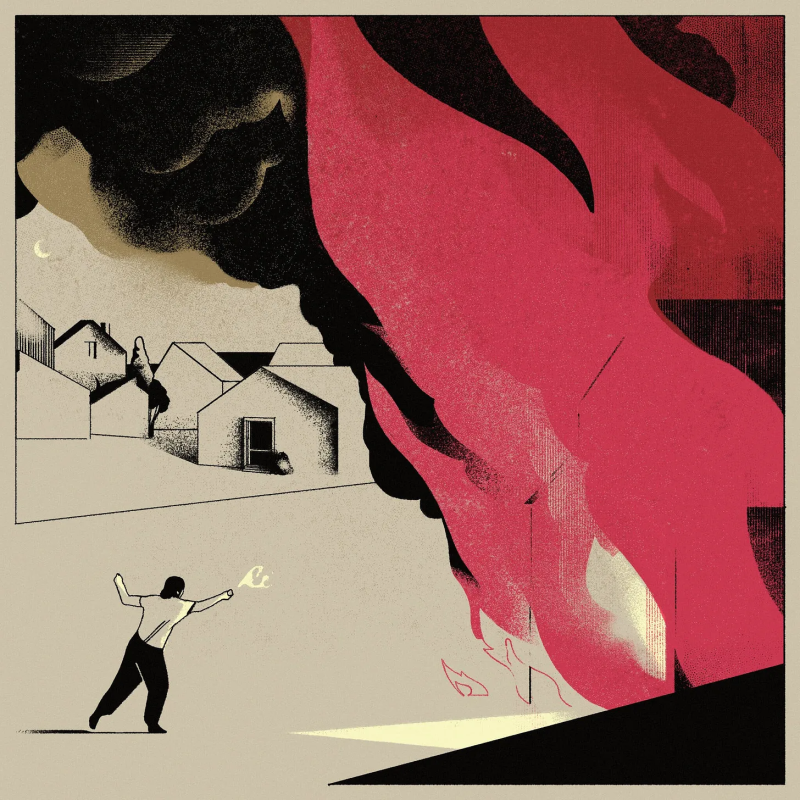
I. The Descent into Madness
The New York Times really outdid itself this past weekend. On Sunday, the it published an Op Ed titled, “A Bat Flew Into My Bedroom and Reminded Me of All We Take for Granted.” I took the bait — I found the strange mix of triviality and hyperbole irresistible.

The article starts out innocently enough. A mom in North Carolina, Belle Boggs, didn’t like the oppressive summer heat and the evening news so she went to bed early. But things quickly went off the rails.
While she slept, her husband (who was working late) left a screen door open and a bat flew into the house. A light sleeper, she noticed the bat, told her husband to capture it (so that they could turn it in to the authorities!) but the bat flew away.
That should be the end of the story, right?
Nope, Belle Boggs was just getting started. She lets us know that this incident was part of a heroic journey. “What happened over the next few days restored my faith in the systems in our country that keep us safe.” What!?
I’ll let her explain:
To decide what to do next, we consulted every resource.
Richard, my husband, read the Centers for Disease Control and Prevention’s website.
I called our health care after-hours line and spoke to a nurse who also consulted the C.D.C.
We called our county’s animal control center, and an officer was at our house within 10 minutes. He searched the house and garage for bats, found none and put in a report to our county’s public health department.
Lady, THE BAT DID NOT TOUCH YOU AND FLEW AWAY.
But Belle’s undiagnosed hypochondria was now in full bloom. So on Sunday morning Belle and her husband drove to the emergency room at the University of North Carolina Hospital; got two rabies shots, one in each arm; and “paid $600 E.R. copays with heftier hospital bills to come.”
Wait, she got rabies shots because she saw a bat that flew away!? That makes no sense.
But it gets worse because she uses this harrowing tale — a bat flew into her house and then out again — to launch into a political critique!
She explains that Donald Trump and Project 2025 want to shrink the administrative state. And that is bad because the layers and layers of civil service officers (C.D.C., night nurse, county animal control center, and university hospital) are what kept her safe from this bat that flew into her house and then out again on its own without touching anyone.
She concludes the op-ed by saying that she’s supporting Kamala Harris because “I don’t want to live in a country that doesn’t hold the health and safety of its citizens in high regard, and I don’t want to be left to make important decisions without guidance from qualified professionals. But for now and for at least the next six months, I don’t. I live in the United States of America — land of bats, land of doctors, land of public health — and that’s worth fighting for.”
It apparently never occurred to Belle that these “qualified health professionals” might be part of the problem.
The crack editors at the New York Times thought this was one of the best op-eds they’d read all week so they published it in the Sunday Opinion Section read by millions of people.
II. A Technical Aside
To be clear, I take the threat of rabies seriously. According to StatNews there were 89 rabies deaths in the US from 1960 to 2018 (so, about 1.5 per year). An estimated 96% of bats don’t have rabies but the remaining 4% do, so prudence is in order. One still has to get scratched or bitten though in order to get infected and that’s extremely rare (because bats are scared of humans and try to avoid us).
What Belle Boggs and the New York Times absolutely refuse to do is to look up how many people are injured by rabies vaccines every year — that’s the information one needs in order to do a proper cost-benefit comparison.
So I went over to OpenVAERS to find the results for myself. I discovered that:
- Since 1990 there have been 6,305 VAERS reports of rabies vaccine injuries including 184 deaths.
- If one restricts the search to just the US there are 4,332 VAERS reports of rabies vaccine injuries including 9 deaths.
- Those are really high numbers of injuries given that so few rabies vaccines are administered every year (a CDC Rabies Vaccine information Statement from 2009 claims 16,000 to 39,000 people are vaccinated against rabies in the US every year as compared with over 150 million flu shots annually).
- And remember: the underreporting factor for VAERS is between 10 and 100 so the actual number of rabies vaccine injuries and deaths are likely much higher.
Furthermore, if you’re bitten, what saves your life is human rabies immune globulin (HRIG), not the vaccine (immunity to rabies from the vaccine takes much longer to develop).
So if one has not been exposed and is not in a high-risk group (bat researchers for example) the rabies vaccine is almost all risk and no benefit.
My hunch is that Belle Boggs actually got HRIG in one arm and the rabies vaccine in the other, rather than “two rabies vaccines” as she claimed — please see additional details below.
III. Takeaways
My takeaways from the article are that:
• Vaccines in general and Covid in particular broke the brains of progressives.
• These people are now completely insane.
• I should not have to explain this but you do NOT need a rabies shot if you happen to see a bat!
• Hypochondria is a serious mental illness; Belle Boggs and her husband need psychological counseling not rabies shots.
• Articles like this convince me of the urgent need to abolish the administrative state.
• The grifters in public health need to stop taking advantage of crazy Democrats who are not thinking straight.
Also, what is going on with the New York Times!? Do they really believe that a small flying mammal who made one wrong turn is equivalent to fighting a house fire with a single glass of water (as the graphic accompanying the article suggests)!?

And is this really the sort of cutting-edge journalism that they want in the Sunday Opinion section? Is everyone at the New York Times now just completely nuts?
But then there is a final twist. Longtime uTobian reader April Smith pointed out that there is a new mRNA rabies vaccine. Was this article actually paid product placement to try to get this new shot approved? Given everything we know about the New York Times seems more than likely.
I note also that the CDC recently published Rabies Post-exposure Prophylaxis which includes a dose of human rabies immune globulin (HRIG) and FOUR DOSES of rabies vaccine. Perhaps the CDC just placed the article to try to sell more product on behalf of their Pharma patrons?
Bats feed every evening at dusk where I live. They swoop and swirl eating the bugs — mosquitoes mostly. They are incredibly beautiful and they use echolocation to avoid coming in contact with us. I’ve been inside temples, caves, and archeological sites in Southeast Asia with thousands of bats and never feared for my safety. I don’t want to live in Belle Boggs’ hypochondriacal dystopia where the risks of nature are exaggerated and toxic injections are worshipped.
We are a part of nature, inseparable, and this extreme estrangement from nature is the source of so much misery. Healing from the current crisis does not require more civil servants, it requires a restored relationship with the natural world. I’m grateful for the people who understand this and are troubled by the New York Times’ brazen attempts to manufacture unnecessary anxiety and increased alienation.
Republished from the author’s Substack
Disclaimer
Some of the posts we share are controversial and we do not necessarily agree with them in the whole extend. Sometimes we agree with the content or part of it but we do not agree with the narration or language. Nevertheless we find them somehow interesting, valuable and/or informative or we share them, because we strongly believe in freedom of speech, free press and journalism. We strongly encourage you to have a critical approach to all the content, do your own research and analysis to build your own opinion.
We would be glad to have your feedback.
Source: Brownstone Institute Read the original article here: https://brownstone.org/

